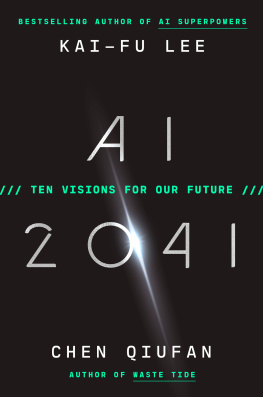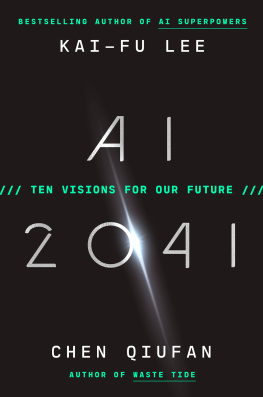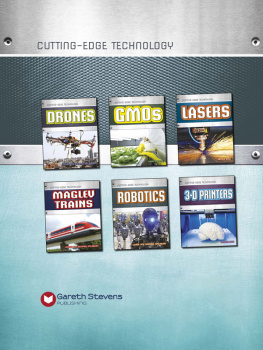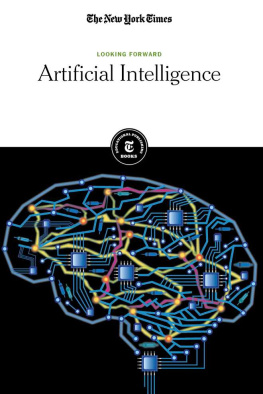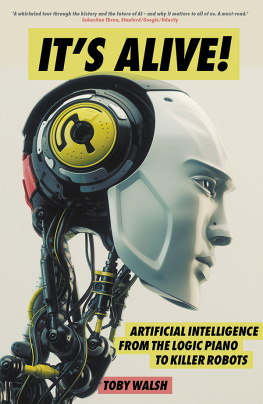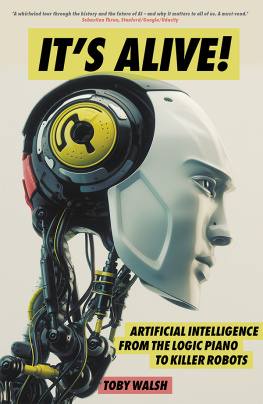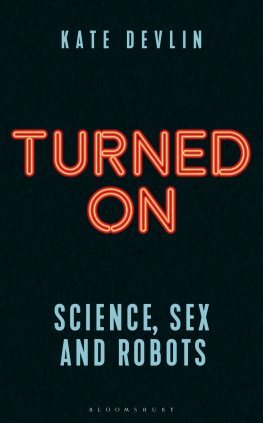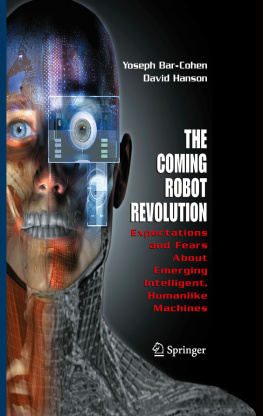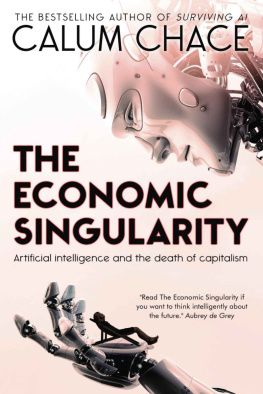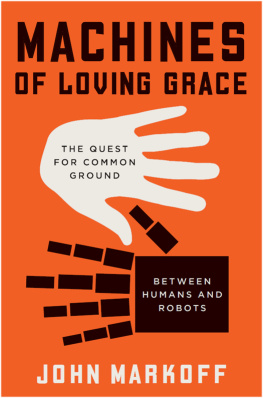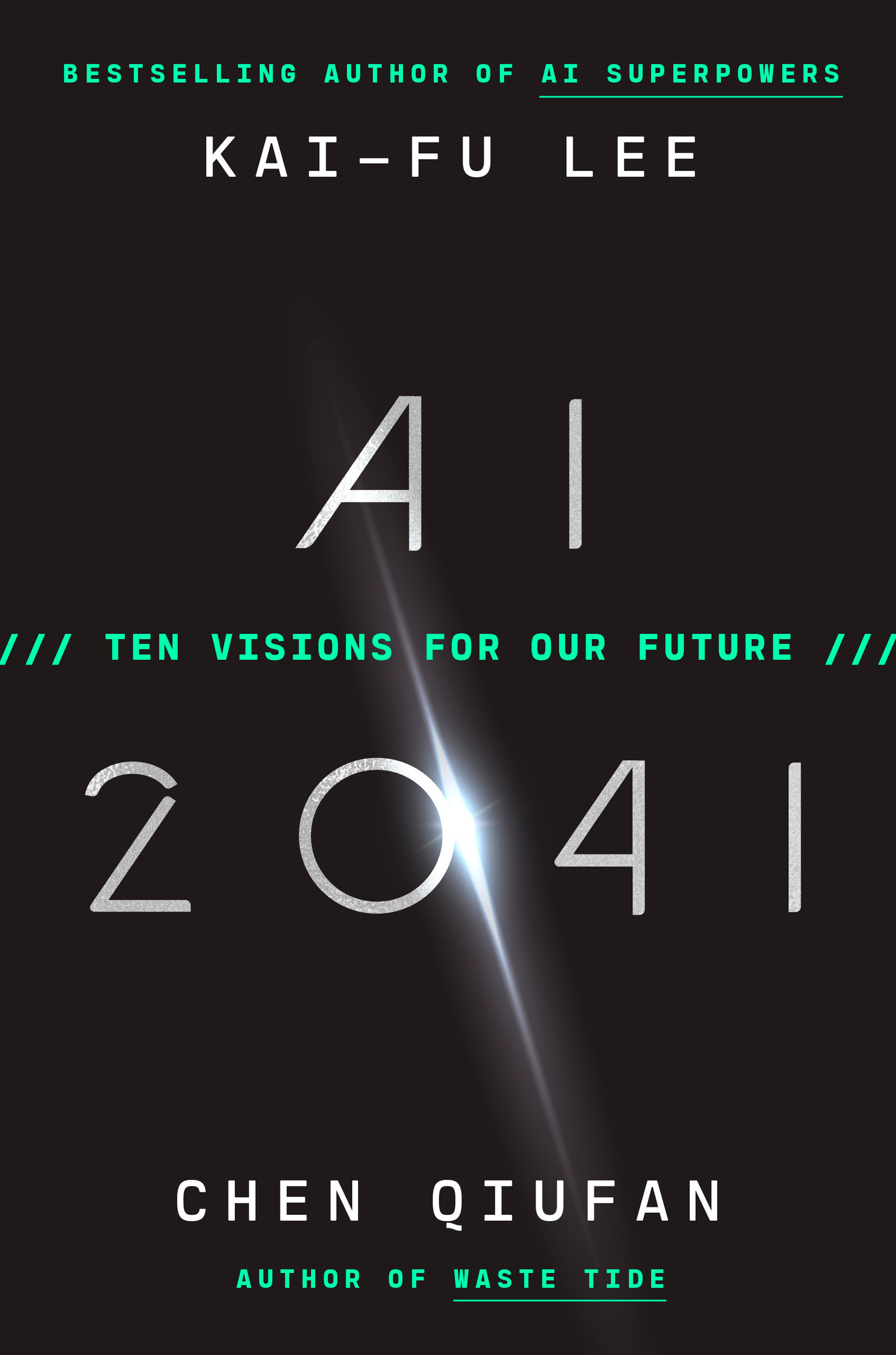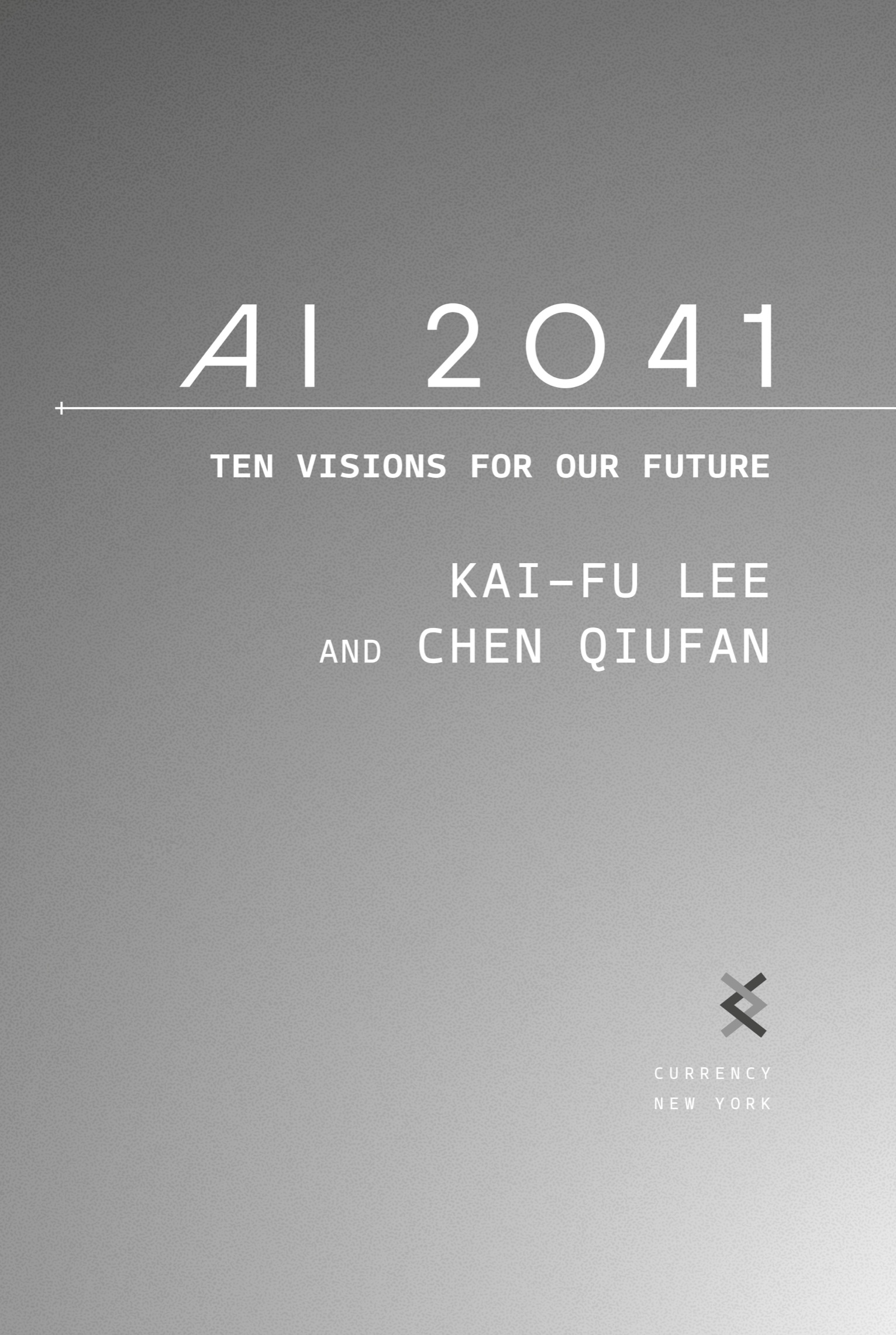Contents
Landmarks
Print Page List
The stories in this book are a work of fiction. Names, characters, business, events, and incidents are the products of the authors imaginations. Any resemblance to actual persons, living or dead, or actual events is purely coincidental.
Copyright 2021 by Kai-Fu Lee and Chen Qiufan
All rights reserved.
Published in the United States by Currency, an imprint of Random House, a division of Penguin Random House LLC, New York.
Currency and its colophon are trademarks of Penguin Random House LLC.
Library of Congress Cataloging-in-Publication Data
Names: Lee, Kai-Fu, author. | Chen, Qiufan, author.
Title: AI 2041 / by Kai-Fu Lee and Chen Qiufan.
Description: First edition. | New York: Currency, [2021] | Includes index.
Identifiers: LCCN 2021012928 (print) | LCCN 2021012929 (ebook) | ISBN 9780593238295 (hardcover; acid-free paper) | ISBN 9780593238301 (ebook)
Subjects: LCSH: Artificial intelligence in literature. | Artificial intelligence.
Classification: LCC Q335 .L423 2021 (print) | LCC Q335 (ebook) | DDC 006.3dc23
LC record available at https://lccn.loc.gov/2021012928
LC ebook record available at https://lccn.loc.gov/2021012929
International edition ISBN9780593240717
Ebook ISBN9780593238301
crownpublishing.com
Book design by Edwin Vazquez, adapted for ebook
Cover Design: Will Staehle
ep_prh_5.7.1_c0_r0
Contents
What we want is a machine that can learn from experience.
Alan Turing
Any sufficiently advanced technology is indistinguishable from magic.
Arthur C. Clarke
INTRODUCTION BY KAI-FU LEE
THE REAL STORY OF AI
Artificial intelligence (AI) is smart software and hardware capable of performing tasks that typically require human intelligence. AI is the elucidation of the human learning process, the quantification of the human thinking process, the explication of human behavior, and the understanding of what makes intelligence possible. It is mankinds final step in the journey to understanding ourselves, and I hope to take part in this new, but promising science.
I WROTE THESE words as a starry-eyed student applying to Carnegie Mellon Universitys PhD program almost forty years ago. Computer scientist John McCarthy coined the term artificial intelligence even earlierat the legendary Dartmouth Summer Research Project on Artificial Intelligence in the summer of 1956. To many people, AI seems like the quintessential twenty-first-century technology, but some of us were thinking about it decades ago. In the first three and a half decades of my AI journey, artificial intelligence as a field of inquiry was essentially confined to academia, with few successful commercial adaptations.
AIs practical applications once evolved slowly. In the past five years, however, AI has become the worlds hottest technology. A stunning turning point came in 2016 when AlphaGo, a machine built by DeepMind engineers, defeated Lee Sedol in a five-round Go contest known as the Google DeepMind Challenge Match. Go is a board game more complex than chess by one million trillion trillion trillion trillion times. Also, in contrast to chess, the game of Go is believed by its millions of enthusiastic fans to require true intelligence, wisdom, and Zen-like intellectual refinement. People were shocked that the AI competitor vanquished the human champion.
AlphaGo, like most of the commercial breakthroughs in AI, was built on deep learning, a technology that draws on large data sets to teach itself things. Deep learning was invented many years ago, but only recently has there been enough computing power to demonstrate its efficacy, and sufficient training data to achieve exceptional results. Compared to when I made my cold start in AI forty years ago, we now have about one trillion times more computing power available for AI experimentation, and storing the necessary data is fifteen million times cheaper. The applications for deep learningand its related AI technologieswill touch nearly every aspect of our lives.
AI is now at a tipping point. It has left the ivory tower. The days of slow progress are over.
In just the past five years, AI has beaten human champions in Go, poker, and the video game Dota 2, and has become so powerful that it learns chess in four hours and plays invincibly against humans. But its not just games that it excels at. In 2020, AI solved a fifty-year-old riddle of biology called protein folding. The technology has surpassed humans in speech and object recognition, served up digital humans with uncanny realism in both appearance and speech, and earned passing marks on college entrance and medical licensing exams. AI is outperforming judges in fair and consistent sentencing, and radiologists in diagnosing lung cancer, as well as powering drones that will change the future of delivery, agriculture, and warfare. Finally, AI is enabling autonomous vehicles that drive more safely on the highway than humans.
As AI continues to advance and new applications blossom, where does it all lead?
In my 2018 book AI Superpowers: China, Silicon Valley, and the New World Order, I addressed the proliferation of data, the new oil that powers AI. The United States and China are leading the AI revolution, with the United States leading research advances and China more swiftly tapping big data to introduce applications for its large population. In AI Superpowers, I predicted new advances, from big-data-driven decision-making to machine perception to autonomous robots and vehicles. I projected that AIs new applications in digital industries, finance, retail, and transportation would build unprecedented economic value, but also create problems related to the loss of human jobs and other issues. AI is an omni-use technology that will penetrate virtually all industries. Its effects are being felt in four waves, beginning with Internet applications, followed by applications in business (e.g. financial services), perception (think smart cities), and autonomous applications, like vehicles.
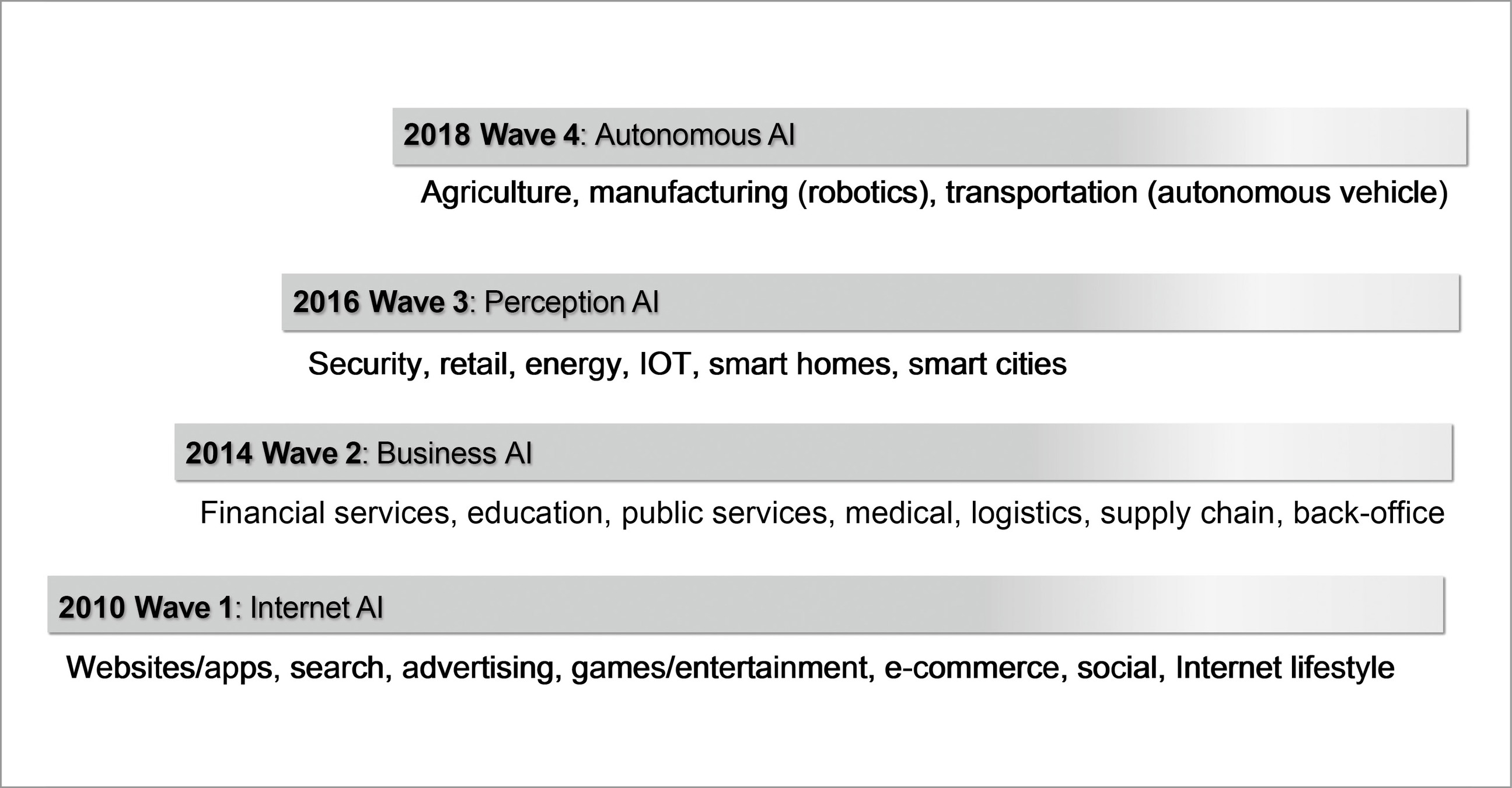
Four waves of AI applications are disrupting virtually all industries.
By the time you read this new book in late 2021 or beyond, the predictions I made in AI Superpowers will have largely become reality. We must now look ahead to new frontiers. As Ive traveled the world talking about AI, Im constantly asked, Whats next? What will happen in another five, ten, or twenty years? What will the future hold for us humans?
These are essential questions for our moment in history, and everyone working in the technology space has an opinion. Some believe that were in the midst of an AI bubble that will eventually pop, or at least cool off. Those with more drastic and dystopian views believe everything from the notion that AI giants will hijack our minds and form a utopian new race of human cyborgs to the arrival of an AI-driven apocalypse. These various predictions may be born out of genuine curiosity or understandable fear, but they are usually speculative or exaggerated. They miss the complete picture.

